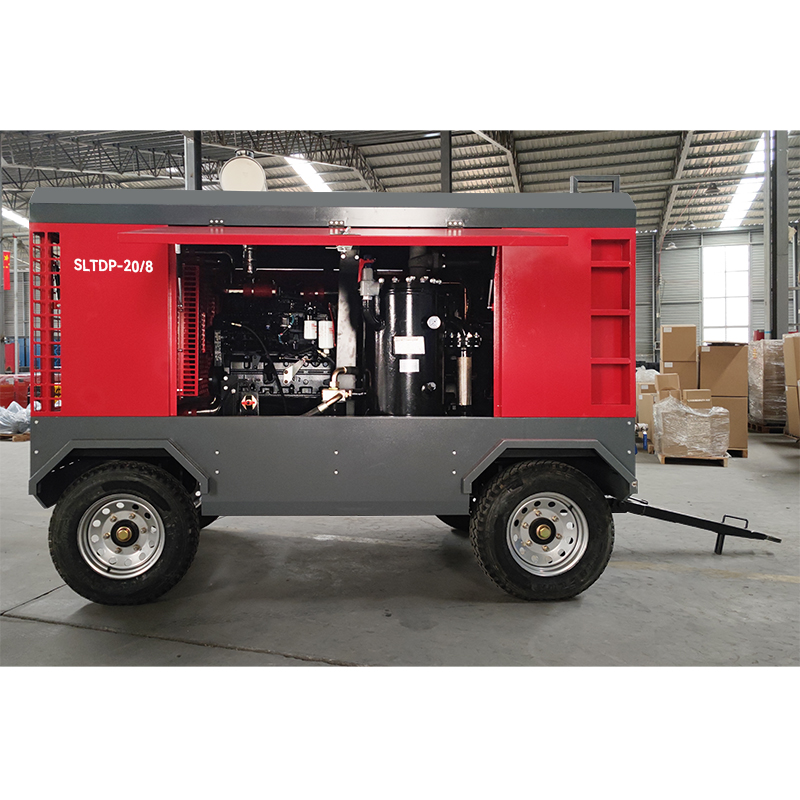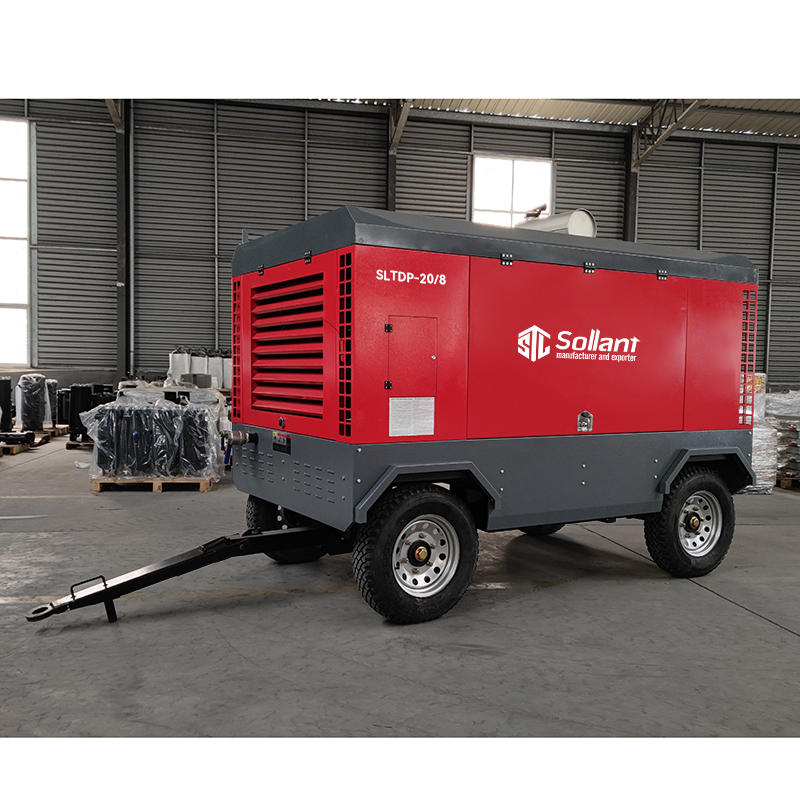What Compressor Machine For Drilling

For drilling applications, the type of compressor machine you need depends on the specific requirements of your drilling project, including the size of the operation, the depth of drilling, and the required pressure and airflow. Here are the most common types of compressors used for drilling:
1. Rotary Screw Air Compressors
Rotary screw compressors are often used for drilling because they provide a continuous and stable flow of air. They are reliable for heavy-duty applications and offer higher efficiency and lower maintenance costs compared to other types. These compressors are ideal for drilling rigs in the oil and gas industry, as well as for construction, mining, and geothermal drilling.
- Best for: Continuous, heavy-duty applications with moderate to high airflow demands.
- Advantages: Energy-efficient, reliable, and capable of handling high-pressure needs.
2. Reciprocating (Piston) Air Compressors
Reciprocating compressors are commonly used in smaller-scale drilling operations, particularly when mobility and portability are needed. They are suitable for low to medium pressure requirements and are widely used in the construction and mining industries, as well as for water well drilling and foundation drilling.
- Best for: Smaller-scale operations, mobile drilling rigs, and less demanding applications.
- Advantages: Cost-effective, portable, and capable of producing high pressure in smaller packages.
3. Diesel-Powered Mobile Air Compressors
Diesel-powered compressors are widely used for drilling because they provide portable, off-grid power, especially for outdoor or remote drilling sites. These compressors are typically designed to handle heavy-duty tasks and can power pneumatic tools, drill bits, and other equipment used in drilling operations.
- Best for: Remote drilling operations, outdoor projects, and locations without electricity access.
- Advantages: High power output, mobility, and durability in harsh environments.

4. Centrifugal Air Compressors
Centrifugal compressors are often used in large-scale drilling operations, especially in the oil and gas sector. They provide high-volume, low-pressure air, making them ideal for specific applications that require large quantities of air, such as cooling, ventilation, or gas injection.
- Best for: Large-scale, high-volume drilling operations.
- Advantages: High airflow capacity and efficiency in large operations.
5. Oil-Free Air Compressors
For drilling operations where clean, dry air is required (e.g., in the food and beverage industry, or where precision drilling is crucial), oil-free air compressors are used. These compressors ensure that there is no contamination from oil, which is important in industries that require very high air quality standards.
- Best for: Sensitive drilling operations that require clean, oil-free air.
- Advantages: Clean, dry air output, reducing the risk of contamination.
Key Considerations When Choosing a Compressor for Drilling:
- Pressure and Airflow Requirements: Depending on your drilling method, you may need a compressor that can deliver high pressure or high airflow. Rotary screw and reciprocating compressors typically offer higher pressure, while centrifugal compressors are better suited for high-volume, low-pressure needs.
- Portability: If your drilling operation is in a remote location, you may need a diesel-powered, mobile compressor to provide flexibility and mobility.
- Durability: Drilling can be a tough job, so your compressor must be able to handle harsh conditions. Look for models designed to withstand the demands of drilling, especially in extreme temperatures or rough terrains.
- Energy Efficiency: For long-term drilling operations, energy-efficient compressors will help keep operational costs down.
Conclusion:What compressor machine for drilling
For drilling applications, rotary screw compressors and reciprocating compressors are commonly used based on their efficiency and reliability. Diesel-powered mobile compressors are particularly useful in remote locations, while oil-free compressors ensure clean air for precision work. Your choice will depend on the scale and nature of your drilling operation, as well as factors like air pressure, volume, and environmental conditions.
Applications of 88kW Diesel Mobile Air Compressors
Reasons for changes in the exhaust volume of screw compressors



